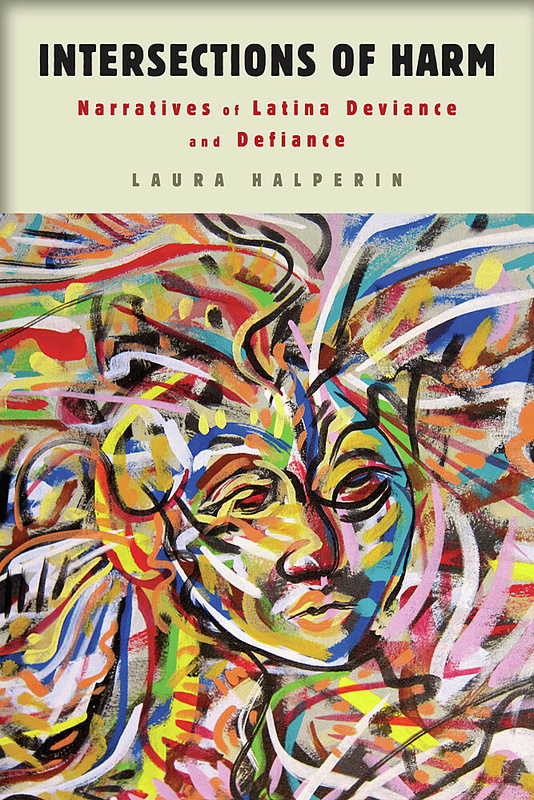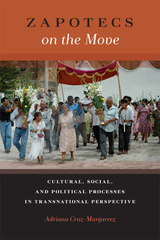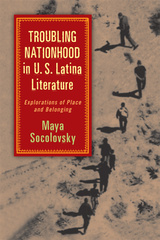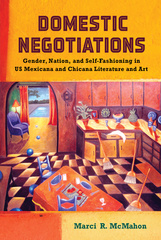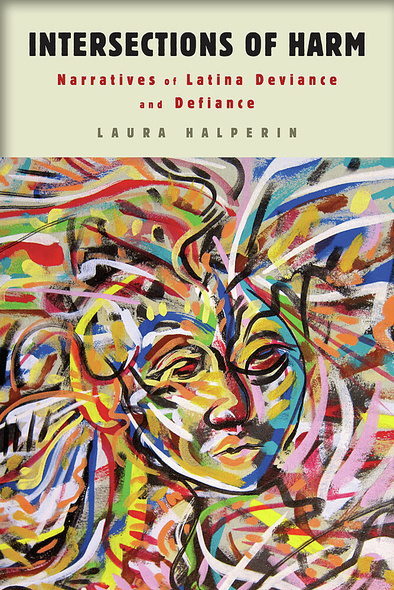
254 pages, 6 x 9
Paperback
Release Date:13 Jul 2015
ISBN:9780813570365
Hardcover
Release Date:13 Jul 2015
ISBN:9780813570372
Intersections of Harm
Narratives of Latina Deviance and Defiance
Rutgers University Press
In this innovative new study, Laura Halperin examines literary representations of harm inflicted on Latinas’ minds and bodies, and on the places Latinas inhabit, but she also explores how hope can be found amid so much harm. Analyzing contemporary memoirs and novels by Irene Vilar, Loida Maritza Pérez, Ana Castillo, Cristina García, and Julia Alvarez, she argues that the individual harm experienced by Latinas needs to be understood in relation to the collective histories of aggression against their communities.
Intersections of Harm is more than just a nuanced examination of the intersections among race, ethnicity, class, gender, and sexuality. It also explores the intersections of deviance and defiance, individual and collective, and mind, body, and place. Halperin proposes that, ironically, the harmful ascriptions of Latina deviance are tied to the hopeful expressions of Latina defiance. While the Latina protagonists’ defiance feeds into the labels of deviance imposed on them, it also fuels the protagonists’ ability to resist such harmful treatment. In this analysis, Halperin broadens the parameters of literary studies of female madness, as she compels us to shift our understanding of where madness lies. She insists that the madness readily attributed to individual Latinas is entwined with the madness of institutional structures of oppression, and she maintains that psychological harm is bound together with physical and geopolitical harm.
In her pan-Latina study, Halperin shows how each writer’s work emerges from a unique set of locales and histories, but she also traces a network of connections among them. Bringing together concepts from feminism, postcolonialism, illness studies, and ecocriticism, Intersections of Harm opens up exciting new avenues for Latina/o studies.
Though several of the texts Halperin discusses have heretofore received extensive attention, Halperin places all the texts in conversation with each other and with other works, revealing a landscape of women seen as deviant, often mentally ill, for their resistance to oppression. Halperin argues for deviance itself as a form of hope, and maintains that pain, though disempowering, can be transformative ... Highly recommended. Lower-division undergraduates through faculty.
With scholarship that is broad and deep, Intersections of Harm offers excellent, original, and nuanced readings of Latina/o literature that add to ongoing conversations in Latina literary studies and beyond.
Intersections of Harm makes a distinctive contribution through its careful analysis of how individual physical and psychological damage interacts with larger, geopolitical forms of harm, making for rich, nuanced reading.
Featured on the weekly book list (http://bit.ly/1K5Phrs)
Intersections of Harm is not only an outstanding and innovative contribution to Latina/o literature but also to contemporary women’s literature and theorizations about madness and institutional structures of oppression. The book must be praised for its solid construction.
Intersections of Harm is at its best when it homes in on historically specific moments in the Americas to provide contextual information for its texts...In this way, Halperin makes an excellent case for the impossibility of extricating collective and geopolitical violence from the individual experience.
LAURA HALPERIN is an assistant professor of English and comparative literature and Latina/o studies at the University of North Carolina, Chapel Hill.
Contents
Acknowledgments
Introduction: Heridas, Hendiduras, y Rajaduras: Contextualizing Harm
1 Rape’s Shadow: Seized Freedoms in Irene Vilar’s The Ladies’ Gallery and Impossible Motherhood
2 Violated Bodies and Assaulting Landscapes in Loida Maritza Pérez’s Geographies of Home
3 Madness’s Material Consequences in Ana Castillo’s So Far From God
4 Artistic Aberrance and Liminal Geographies in Cristina García’s Dreaming in Cuban
5 Clamped Mouths and Muted Cries: Stifled Expression in Julia Alvarez’s How the García Girls Lost Their Accents
Conclusion: Hope in the Interstices
Notes
Bibliography
Index

